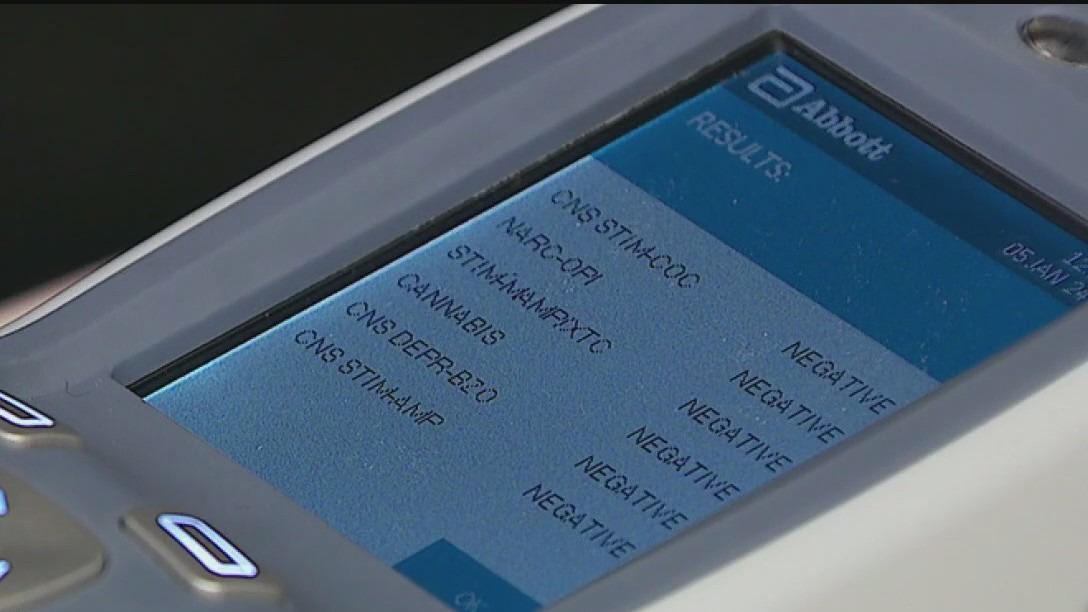Saliva drug testing could become new pre-employment alternative

Marijuana testing for Minnesota drivers
Minnesota authorities are launching a pilot project to see how effective roadside saliva testing for drugs can be in detecting impaired drivers.
ST. PAUL, Minn. (FOX 9) - Following the legalization of recreational marijuana last legislative session, job-seekers might be faced with a new type of drug test that would speed up their route to employment in Minnesota.
Sponsored by Rep. Kelly Moller (DFL-Shoreview), a proposed new bill would establish "oral fluid" drug testing as a pre-employment alternative for drug, alcohol, and cannabis testing by employers, and expand current statute limitations on testing to add the variation as another way for an employer to test an applicant.
If approved, it would create an alternative to existing lab program testing currently required under Minnesota law.
"Under current statute, people have to go off to a different location, such as a lab, for drug testing, and as a result of that delay they decide to go somewhere else," Rep. Moller said during the House Labor and Industry Finance and Policy committee on Thursday. "With a labor shortage, it means that people are not able to get employees, and people can’t get started working right away… It’s a win-win for the employee and employer."
An "oral fluid test" would be defined as a test that uses a saliva sample to measure the presence of drugs, alcohol, cannabis, or their metabolites at the same or better levels as existing lab programs.
Under current norms, Minnesotans required to take a pre-employment drug test need to consult a third-party lab for drug testing, which often creates a delay in the hiring process and results in an applicant needing to obtain the test on their own time, and through their own transportation.
Lawmakers and employers alike are looking to provide an alternative and speed-up that employment timeline for potential workers.
"In my 20-plus years as a hiring manager, I’ve experienced the challenges that the current statute has on applicants, and the friction that it has in the hiring process," said Todd Gaynor, general manager of Veyer Logistics, which works with Office Depot and has advocated for the use of saliva testing as a means of pre-employment drug testing. "A lot of applicants don’t have transportation to get to a lab within labor hours, and they might also have another job they’re working. Instead of it being fast-tracked with an instant drug test, it creates a lot of lag time. I’ve seen numerous cases where we’ve extended a job offer, but the drug testing never gets completed and the applicant abandons the job at that point."
Under the proposal, a third party licensed, accredited, or certified lab would not be required if an employer agreed to follow the procedures for the oral fluid test.
During the discussion, Rep. Shane Mekeland (R-Clear Lake) voiced concerns over false negatives from the alternative form of testing.
Within the bill, a job applicant would still be required to submit to lab testing within 48 hours of a positive, inconclusive, or invalid oral fluid test.
Existing safeguards regarding rights, notice, retest procedures and job offer withdrawals would apply to oral fluid testing, just as they did for lab testing.
"In states where we’re doing saliva testing, over 99% of the applicants have immediately passed and been fast-tracked," Gaynor said, noting the usage of the brand OralTox. "If someone tests positive, then we would begin the process that is currently in place now. This just hopefully steers the large majority away from that process, but it’s still there as a safety net if needed."
According to Gaynor, 39 other states currently use saliva testing as a means of pre-employment drug testing.
FOX 9 previously covered the Minnesota State Patrol testing similar products to detect driving impairment. In the next year, Minnesota drug recognition experts will be receiving about 75 SoToxa saliva testing devices.
As the bill progresses, lawmakers said they would seek to further clarify the accuracy of oral tests.
The bill was approved by lawmakers on Thursday, and laid over for possible inclusion in a larger collection of bills later in the legislative session, known as an omnibus bill.

